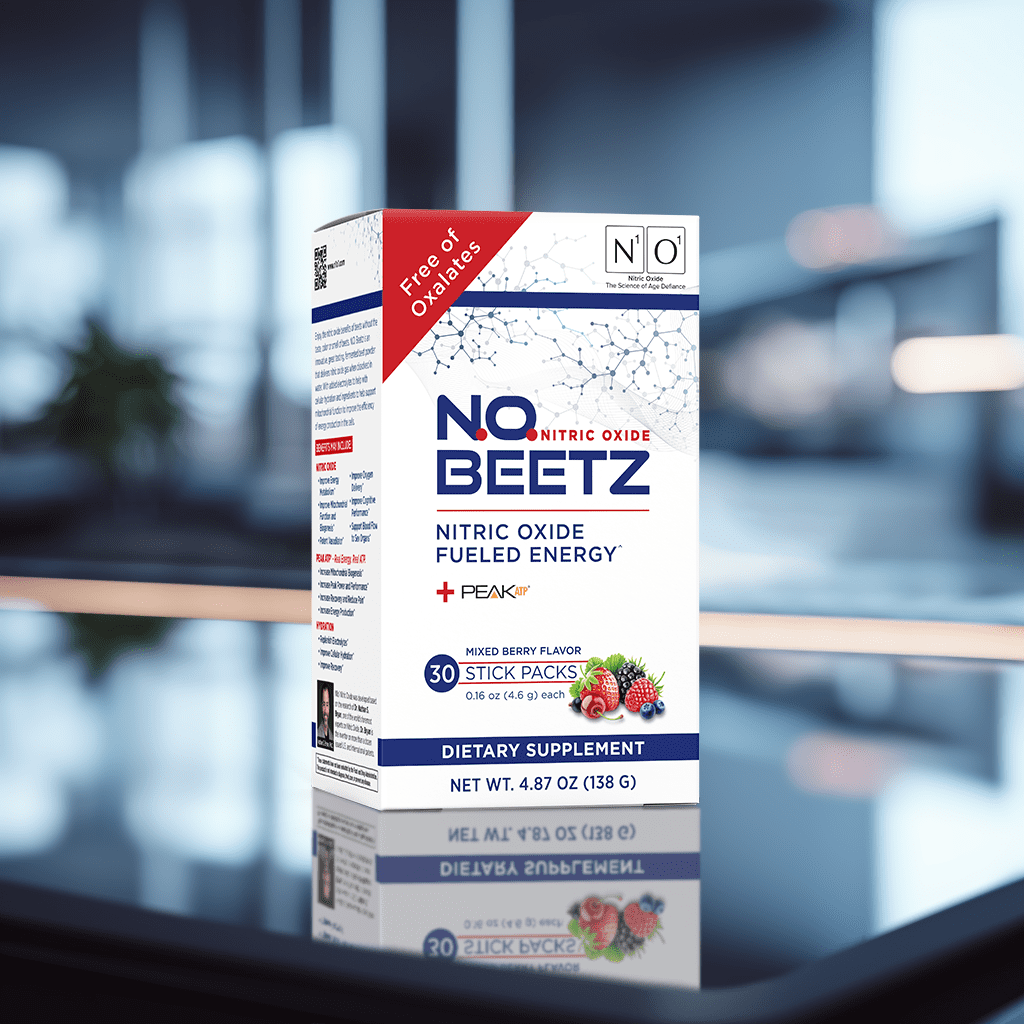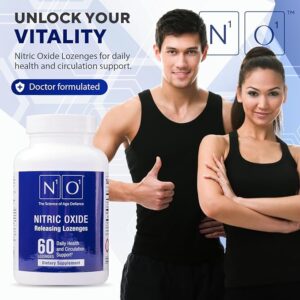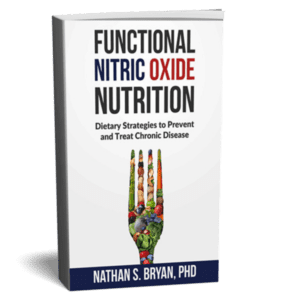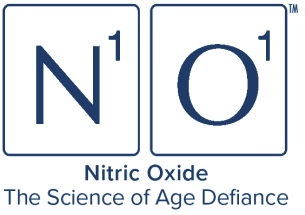Top Ways to Naturally Increase Nitric Oxide Levels

By Alyssa Seidler
11/27/2024
Curious about nitric oxide? This vital molecule helps regulate blood flow, lower blood pressure, and boost your immune system.
In this article, we’ll dive into how nitric oxide works, its key health benefits, and the top ways to naturally increase nitric oxide levels.
With all of this information, you will have a much better understanding of nitric oxide and how improving it can really help benefit your health.
Key Takeaways
- Nitric oxide (NO) is a vital molecule that aids in various physiological functions including vasodilation, immune response, and neurotransmission, highlighting its importance for overall health.
- The body produces nitric oxide through two primary pathways: the NO-synthase-dependent pathway using L-arginine and the NO-synthase-independent pathway utilizing dietary nitrates from certain foods.
- Natural ways to enhance nitric oxide levels include consuming nitrate-rich foods, engaging in regular exercise, maintaining oral health, and considering specific supplements such as L-arginine and L-citrulline.
Understanding Nitric Oxide
Nitric oxide is a gaseous radical molecule that is water-soluble. It can move freely across cell membranes, which allows it to function as an efficient signaling molecule. Its ability to cross cell membranes so effortlessly allows it to participate in various critical bodily functions, such as dilating blood vessels, stimulating hormone release, regulating neurotransmission, and modulating blood flow and muscle contractility. This multifaceted role makes nitric oxide releasing materials indispensable for maintaining optimal health.
One of the most remarkable functions of nitric oxide is its ability to help blood vessels relax and widen, thereby improving blood flow and lowering blood pressure. This vasodilatory effect is crucial for ensuring that vital organs receive an adequate supply of oxygen and nutrients.
The body produces nitric oxide from nitrates and nitrites found in food, with oral bacteria playing a beneficial role by converting these nitrates to nitrites. This conversion process highlights the interconnectedness of our diet, oral health, and overall well-being.
Beyond its vascular benefits, nitric oxide supports the immune system by assisting immune cells in responding rapidly to threats. This signaling molecule’s extensive range of actions underscores its importance in various physiological processes, making it a key player in maintaining health and preventing disease.
Understanding nitric oxide’s role provides a solid foundation for exploring ways to boost its levels naturally.
How Nitric Oxide is Produced in the Body
The human body produces nitric oxide through two primary pathways: the NO-synthase-dependent and NO-synthase-independent pathways. Each pathway involves different mechanisms and substrates, highlighting the complexity and versatility of nitric oxide production. Understanding these pathways is crucial for identifying effective strategies to enhance nitric oxide levels.
The NO-synthase-dependent pathway involves nitric oxide synthase (NOS) enzymes, which convert L-arginine into nitric oxide and citrulline. This nitric oxide pathway primarily relies on three types of NOS: neuronal (nNOS), inducible (iNOS), and endothelial (eNOS), each playing distinct roles in regulating nitric oxide levels under various physiological conditions.
On the other hand, the NO-synthase-independent pathway involves dietary nitrates that are converted into nitric oxide through a series of reduction reactions. These pathways collectively ensure that the body can produce nitric oxide under different conditions and from various sources.
NO-Synthase-Dependent Pathway
The NO-synthase-dependent pathway is a primary route for nitric oxide production, involving the conversion of L-arginine into nitric oxide and L-citrulline by nitric oxide synthase (NOS) enzymes. This pathway is critical for maintaining adequate nitric oxide levels, particularly in tissues where rapid and localized production is required.
There are three recognized isoforms of nitric oxide synthase. They are neuronal (nNOS), inducible (iNOS), and endothelial (eNOS).
Neuronal NOS (nNOS) is typically found in nervous tissue and is involved in neurotransmission. Inducible NOS (iNOS) is activated by cytokines, growth factors, and inflammatory stimuli, playing a significant role in immune responses. Endothelial NOS (eNOS), on the other hand, is crucial for vascular health, as it regulates blood vessel dilation and blood flow. Both nNOS and eNOS are considered constitutive NOS, requiring intracellular calcium fluxes or exogenous calmodulin for their enzymatic activity.
The end-products of NO-synthase-dependent synthesis include nitrite (NO2) and nitrate (NO3), which are vital for various physiological functions. Key components required for the dimerization of nitric oxide synthases include heme, BH4, and arginine, underscoring the importance of these elements in maintaining efficient nitric oxide production.
NO-Synthase-Independent Pathway
The NO-synthase-independent pathway offers an alternative route for nitric oxide production, primarily relying on dietary nitrates.
This pathway involves the conversion of dietary nitrates into nitric oxide through a series of reduction reactions, with nitrites serving as crucial intermediates. This process underscores the importance of dietary choices in maintaining optimal nitric oxide levels.
Dietary nitrates, found in foods like leafy greens and beets, are essential precursors for nitric oxide production. These nitrates are first converted into nitrites by oral bacteria and then further reduced to nitric oxide in the body.
This pathway is particularly vital for individuals who may have impaired NO-synthase-dependent nitric oxide production, providing an alternative means to boost nitric oxide levels.

Key Nutrients and Supplements for Boosting Nitric Oxide Levels
Increasing nitric oxide levels can be achieved through various nutrients and nitric oxide supplements, each playing a distinct role in nitric oxide production.
Here are some key contributors:
- L-arginine: An amino acids that serves as a precursor for nitric oxide synthesis.
- L-citrulline: Another amino acid that also contributes to nitric oxide production.
- Dietary nitrates: Provide an alternative source through the NO3-NO2-NO pathway.
These nutrients and supplements can be incorporated into one’s diet or taken as supplements to enhance nitric oxide levels naturally.
Lifestyle choices, including dietary changes and regular physical activity, can significantly enhance nitric oxide levels. Implementing these strategies can provide a comprehensive approach to boosting nitric oxide levels, promoting overall health and well-being.
L-Arginine
L-arginine is an amino acid that plays a critical role in the synthesis of nitric oxide, making it a popular supplement for boosting nitric oxide levels. As a direct precursor for nitric oxide production, L-arginine supplements can enhance respiratory response and overall exercise performance, particularly in individuals who engage in moderate exercise.
This amino acid’s ability to produce nitric oxide makes it a valuable addition to any supplementation regimen aimed at improving vascular health and exercise outcomes.
Studies investigating L-arginine’s impact on strength performance have shown promising results. Tests such as maximal unilateral isometric force and leg press to failure have demonstrated L-arginine’s potential to enhance muscle strength and endurance. These benefits highlight the importance of L-arginine in supporting physical performance and recovery.
L-arginine supplements are also known for their potential to improve erectile function by increasing nitric oxide production, which enhances blood flow to the genital area. This makes L-arginine a valuable supplement to treat erectile dysfunction and overall sexual health.
L-Citrulline
L-citrulline is a non-essential amino acid that serves as a precursor to L-arginine, thereby enhancing nitric oxide production. Once ingested, L-citrulline is converted into L-arginine, which is then utilized by nitric oxide synthases (NOS) to produce nitric oxide. This conversion process makes L-citrulline an effective supplement for boosting nitric oxide levels.
In addition to its role in nitric oxide synthesis, L-citrulline may work synergistically with dietary nitrates to increase nitric oxide levels through distinct parallel pathways. Supplementing with L-citrulline raises extracellular levels of L-arginine, enhancing its availability for nitric oxide production and supporting overall vascular health.
Dietary Nitrate
Dietary nitrates, found in foods like beetroot juice, are a potent source of nitric oxide precursors. These nitrates are converted into nitric oxide through the NO3-NO2-NO pathway, with nitrite serving as an essential intermediate. The major oxidation products of nitric oxide synthesis include nitrate and nitrite, highlighting the importance of these dietary components in maintaining nitric oxide levels.
Research has shown that beetroot juice supplementation can significantly increase plasma nitrite levels, enhancing nitric oxide production. This increase in plasma nitrite levels is beneficial for various physiological functions, including improved mitochondrial respiration and exercise performance. Incorporating nitrate-rich foods into the diet can provide a natural and effective way to boost nitric oxide levels.
Nitrate and nitrite also enhance mitochondrial respiration through nitric oxide synthesis, which is beneficial for exercise physiology. This makes dietary nitrate supplementation a valuable strategy for athletes and individuals looking to improve their physical performance and endurance.

Health Benefits of Increased Nitric Oxide Levels
Increased nitric oxide levels offer a multitude of health benefits, from enhanced blood flow and circulation to improved exercise performance and cardiovascular health. Nitric oxide plays a crucial role in relaxing blood vessels, enhancing the flow of blood, oxygen, and nutrients to vital organs. This vasodilatory effect is essential for maintaining vascular health and preventing cardiovascular diseases.
Individuals with low nitric oxide levels face higher risks of conditions like high blood pressure and coronary artery disease. By boosting nitric oxide levels through diet, exercise, and supplements, one can significantly enhance overall health and well-being. Each of these benefits will be explored in detail in the following subsections.
Enhanced Blood Flow and Circulation
Nitric oxide facilitates the relaxation and widening of blood vessels, which enhances blood circulation and nutrient delivery. This vasodilatory effect is crucial for ensuring that vital organs receive an adequate supply of oxygen and nutrients, improving overall health. Increased nitric oxide promotes vasodilation, leading to improved circulation and nutrient delivery.
Exercise is a powerful tool for enhancing vascular function and nitric oxide production. Physical activity increases blood flow and shear stress, promoting nitric oxide production in the endothelium. This process highlights the importance of an active lifestyle for optimal vascular health.
Higher nitric oxide levels can also help reduce the risk of cardiovascular issues by improving blood vessel function and lowering blood pressure. Nitric oxide is a critical component in maintaining cardiovascular health and preventing related diseases.
Improved Exercise Performance
Higher nitric oxide levels are crucial for increasing blood flow to skeletal muscles during exercise, which can significantly enhance performance. By facilitating better oxygen and nutrient transport to muscles, nitric oxide helps improve exercise outcomes, making it a valuable molecule for athletes and fitness enthusiasts. This enhanced delivery system not only supports endurance but also reduces fatigue during physical activities.
L-arginine supplementation has been shown to enhance exercise performance, particularly in individuals who are not highly trained. This amino acid boosts nitric oxide production, which in turn improves blood flow and reduces fatigue.
L-citrulline, another effective supplement, can bypass liver metabolism, raising blood levels of L-arginine and subsequently increasing nitric oxide production. Additionally, nitrate-rich foods like beetroot juice have been associated with improved mitochondrial efficiency and sports performance.
Beetroot juice supplementation can lead to enhanced oxygen uptake during exercise, further boosting endurance and performance. These benefits highlight the importance of maintaining optimal nitric oxide levels for peak physical performance.
Cardiovascular Health
Nitric oxide plays a pivotal role in promoting cardiovascular health by lowering blood pressure, reducing arterial stiffness, and improving blood flow. Dietary nitrates convert to nitric oxide, which can significantly lower blood pressure and improve cardiovascular health. This vasodilatory effect is essential for maintaining healthy blood vessels and preventing cardiovascular diseases.
Engaging in regular physical activity promotes the release of nitric oxide, benefiting cardiovascular health. Exercise stimulates the production of nitric oxide, supporting vascular function and reducing the risk of cardiovascular issues. This highlights the importance of an active lifestyle for maintaining optimal nitric oxide levels and overall cardiovascular health.
Increased nitric oxide levels support overall cardiovascular health through improved blood flow and reduced risk factors. By incorporating dietary nitrates, regular exercise, and supplements, one can significantly enhance cardiovascular function and reduce the risk of related diseases.

Potential Side Effects and Risks of Nitric Oxide Supplements
While nitric oxide supplements can offer numerous benefits, they may also lead to various side effects that individuals should be aware of. Common side effects include gastrointestinal disturbances, vomiting, nausea, bloating, diarrhea, stomach pain, headache, heartburn, and palpitations. These side effects are often mild but can be more pronounced at higher doses, particularly over 9 grams per day.
Certain health conditions may increase the risk of side effects from nitric oxide supplements. Conditions such as cirrhosis, guanidinoacetate methyltransferase deficiency, and low blood pressure can exacerbate the adverse effects of these supplements. It is crucial for individuals with these conditions to take nitric oxide supplements under medical supervision to avoid complications.
Pregnant women or individuals experiencing low blood pressure should exercise caution with L-arginine supplements, as they can lower blood pressure. Additionally, individuals with low blood pressure should stop nitric oxide supplementation before surgery to avoid complications. Consulting with healthcare providers before starting supplementation is essential for ensuring safe and effective use.

Natural Ways to Boost Nitric Oxide Levels
Boosting nitric oxide levels naturally can be achieved through various lifestyle adjustments, including dietary changes, regular exercise, and maintaining oral health. These methods offer a holistic approach to enhancing nitric oxide production without the need for supplements. By incorporating these natural strategies, individuals can support their overall health and well-being.
Dietary adjustments, such as consuming nitrate-rich foods, can significantly enhance nitric oxide levels. Regular physical activity not only stimulates nitric oxide production but also improves overall vascular function. Maintaining good oral health is also crucial, as oral bacteria play a key role in converting dietary nitrates to nitric oxide. Each of these methods will be explored in detail in the following subsections.
Eating Nitrate-Rich Foods
Beets, leafy greens such as spinach and arugula, and radishes are excellent sources of dietary nitrates. These foods are converted to nitric oxide in the body, contributing significantly to nitric oxide synthesis. Eating nitrate-rich foods plays a significant role in enhancing nitric oxide levels in the body, making them a valuable addition to any diet.
Incorporating these nitrate-rich foods into your diet can help improve overall health by boosting nitric oxide levels. These dietary choices not only support vascular health but also provide numerous other health benefits, making them an essential component of a balanced diet.
Regular Exercise
Exercise stimulates nitric oxide production, playing a crucial role in physiological functions. Physical activity increases blood flow and shear stress in blood vessels, which activates endothelial cells to produce more nitric oxide. This process highlights the importance of an active lifestyle for optimal vascular health.
Higher levels of nitric oxide enhance vascular function by improving blood vessel dilation, resulting in better circulation and a reduced risk of cardiovascular issues. Incorporating regular exercise into a lifestyle can significantly boost nitric oxide levels and support overall health through improved vascular function.
Maintaining Oral Health
Good oral health preserves beneficial bacteria that aid in nitric oxide production. Oral bacteria play a crucial role in converting dietary nitrates into nitrites, which are then transformed into nitric oxide. This process highlights the importance of oral hygiene in supporting nitric oxide synthesis and overall health.
A healthy oral microbiome is essential for converting dietary nitrates into nitrites, which are then transformed into nitric oxide. Good oral hygiene supports beneficial bacteria that convert dietary nitrates into nitrites, aiding in nitric oxide synthesis. This underscores the interconnectedness of oral health and overall well-being.

Take a Nitric Oxide Supplement
Taking nitric oxide supplements, such as L-arginine and L-citrulline, can enhance blood vessel relaxation and widening, potentially improving blood flow. These supplements are particularly beneficial for individuals looking to boost their nitric oxide levels for better exercise performance and vascular health. Some studies indicate that L-arginine supplements may lower blood pressure in pregnant women at risk of preeclampsia.
While many claim benefits from nitric oxide supplements, research supporting specific uses, such as improving athletic performance, is limited and often inconclusive. However, users of nitric oxide supplements often report enhancements in exercise recovery and reduction of muscle soreness. These anecdotal benefits highlight the potential of nitric oxide supplements in supporting physical performance and recovery.
It’s crucial for individuals, especially those with certain medical conditions, to consult with healthcare providers before starting nitric oxide supplements. Common side effects of nitric oxide supplementation may include gastrointestinal discomfort, headaches, and heart palpitations, although these are often mild. Ensuring safe and effective use of these supplements is essential for maximizing their benefits.

Benefits of Taking a Nitric Oxide Supplement
Nitric oxide supplements can enhance blood flow and lower blood pressure, which may benefit those with certain health conditions. L-citrulline, an amino acid found in some nitric oxide supplements, has been shown to improve erectile function by boosting nitric oxide production. This makes nitric oxide supplements a valuable option for individuals looking to enhance their vascular health and sexual function.
Citrulline malate can reduce muscle soreness by increasing blood flow to muscles, potentially aiding recovery after exercise. Nitrate-rich foods, like beetroot, can lower blood pressure by converting to nitric oxide in the body, promoting vascular health. These benefits highlight the versatility of nitric oxide supplements in supporting various aspects of health and well-being.
Nitric oxide plays a crucial role in vasodilation, which is essential for efficient nutrient and oxygen delivery during physical activity. Some research indicates that nitric oxide supplementation might improve insulin sensitivity and blood sugar control in individuals with diabetes.
While nitric oxide supplements are generally safe, some users may experience mild side effects like gastrointestinal discomfort. These potential benefits and safety considerations make nitric oxide supplements a valuable addition to a health regimen.
Frequently Asked Questions
What are the primary pathways for nitric oxide production in the body?
The primary pathways for nitric oxide production in the body are the NO-synthase-dependent pathway, which involves nitric oxide synthase (NOS) enzymes, and the NO-synthase-independent pathway, which utilizes dietary nitrates and nitrites. Both pathways play crucial roles in regulating various physiological functions.
How does L-arginine supplementation improve exercise performance?
L-arginine supplementation significantly improves exercise performance by boosting nitric oxide production, thereby enhancing blood flow and minimizing fatigue during physical activities.
What are the health benefits of increased nitric oxide levels?
Increased nitric oxide levels significantly improve blood flow and circulation, enhance exercise performance, and promote better cardiovascular health. Therefore, maintaining optimal nitric oxide levels can greatly contribute to overall well-being.
Are there any side effects of nitric oxide supplements?
Yes, nitric oxide supplements can cause side effects such as gastrointestinal disturbances, headaches, and heart palpitations. It is advisable for individuals with specific health conditions to consult healthcare providers prior to beginning supplementation.
How can I naturally boost my nitric oxide levels?
To naturally boost your nitric oxide levels, incorporate nitrate-rich foods such as leafy greens and beets into your diet, engage in regular exercise, and prioritize good oral health to support beneficial bacteria. These steps can significantly enhance your nitric oxide production.
Top Ways to Naturally Increase Nitric Oxide Levels Conclusion
In summary, nitric oxide is a vital molecule that plays a crucial role in various physiological processes, from blood vessel dilation to immune response.
Understanding how to boost nitric oxide levels naturally through diet, exercise, and supplements can lead to numerous health benefits, including enhanced blood flow, improved exercise performance, and better cardiovascular health.
By incorporating nitrate-rich foods, engaging in regular physical activity, and considering nitric oxide supplements, individuals can support their overall health and well-being.
Maintaining optimal nitric oxide levels is essential for preventing cardiovascular diseases and enhancing physical performance. Embrace these strategies to unlock the full potential of nitric oxide and improve your quality of life.
-
Sale!

Nitric Oxide Dyno Duo
Original price was: $161.97.$121.48Current price is: $121.48. Add to cart -
Sale!

Age-Defiance Serum
Original price was: $119.98.$89.98Current price is: $89.98. — or subscribe and save 10% Add to cart -
Sale!

N1O1 Nitric Oxide Lozenges
Original price was: $59.98.$44.98Current price is: $44.98. — or subscribe and save 10% Add to cart -
Sale!

Nitric Oxide Nutrition by Dr. Nathan S. Bryan – NEW BOOK
Original price was: $14.95.$11.21Current price is: $11.21. Add to cart

